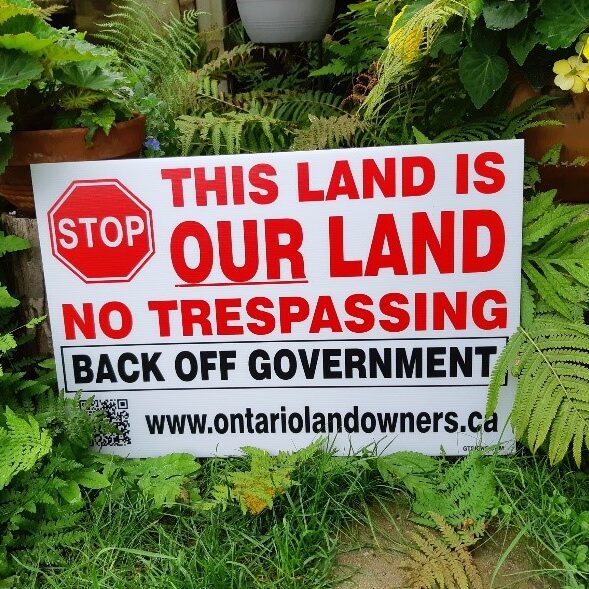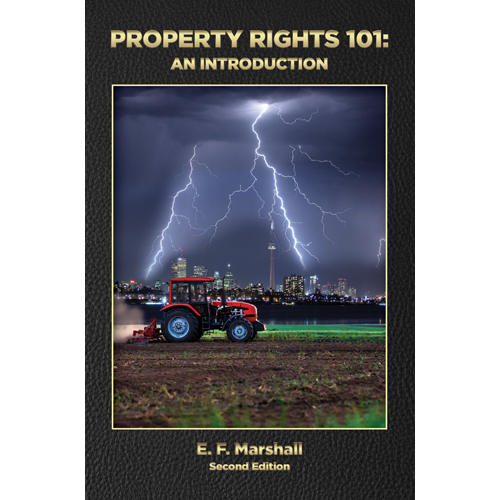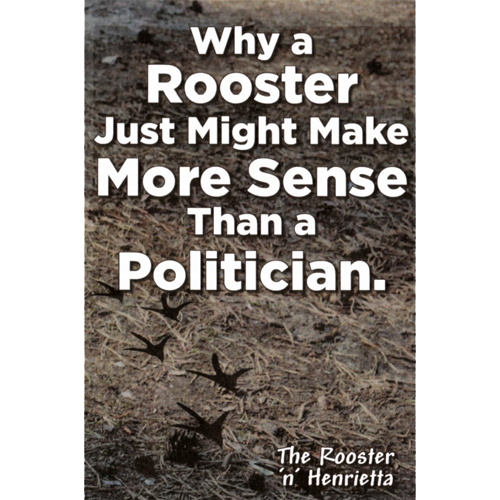Ontario Government Proposes Easements on Private Property to Support Ontario Trails by Shirley Dolan
- 2016-03-01
- By admin
- Posted in Latest News

Shirley Dolan
Historically, property owners and recreational organizations such as snowmobile clubs have negotiated deals whereby private property is used for the enjoyment of the members of that organization. Now the government wants to get involved! Bill 100, Supporting Ontario’s Trails Act was introduced to the legislature by the Hon. Michael Coteau, Minister of Tourism, Culture and Sport in May 2015. It is now in second reading where it will be debated. If it passes second reading, it will be referred to a Committee, and likely passed into law sometime this year. This Bill proposes to formalize agreements between property owners and recreational organizations through easements – easements that will be registered on title. That means that while you still own the property, use of the property will be controlled by the organization, and to a certain extent, by the government, through regulation.
Those who support the Bill are quick to point out that the property owner does not have to sign an agreement to allow an easement; they can continue with the owner / organization agreements. If this is the case, then what is the purpose of the Bill? It offers nothing for the landowner and everything to the “eligible body”, the organization that will control the easement. If there is nothing in the Bill for the landowner, then why would they want to sign an easement agreement?
It seems that this Bill was many years in the making. Yet many of us were taken by surprise when we learned about it. Many landowners, after having a look at the Bill, have chosen to close their trails and others have promised to do the same if the Bill is not withdrawn.
Section 12 of the Bill defines the easements. There is a list of the “eligible bodies” that may enter into the easement agreement with the landowner and these include conservation authorities, municipalities, aboriginal communities, a school board, a charitable foundation, and entities from the Unites States such as conservation land trusts. The Bill also states that the easement can be assigned to another eligible body, and there is nothing in the Bill to say that the owner has to be notified or considered when the easement is assigned.
Supporters of the Bill say it can be fixed in Committee. The Liberals hold a majority in all Committees; they introduced the Bill. What is the likelihood that the concerns of landowners will lead to real improvements before the Bill is passed? Once it has passed and an easement is signed, the owner could possibly end up in court should any disputes arise.
In a recent court decision, the Virginia Supreme Court sided with a small Virginia winery in a dispute with a high-powered national land trust regarding a conservation easement. The problem started when the vineyard decided to build a farm building to house a creamery, a bakery, and a tasting room on their 200-acre property. Environmentalists expressed concerns that the plans violated the conservation easement on the property, and the property owners were subsequently charged with 14 violations of the conservation easement. In the end, the court ruled overwhelmingly in favour of the winery, but not before years of litigation and financial burden. Too often, the Ontario Landowners Association has seen this type of scenario played out when government agencies seek to control private property through easements, designations, and policy statements. Even when the landowner wins in court, they still lose considerable time and money going through the process.
Some landowners are calling for the withdrawal of Bill 100 and the Ontario Landowners Association agrees that it should be withdrawn.
Search:
Categories
Archives
- April 2024
- January 2024
- December 2023
- November 2023
- August 2023
- July 2023
- June 2023
- May 2023
- April 2023
- March 2023
- February 2023
- January 2023
- December 2022
- November 2022
- October 2022
- September 2022
- August 2022
- July 2022
- June 2022
- May 2022
- April 2022
- March 2022
- February 2022
- January 2022
- December 2021
- November 2021
- October 2021
- September 2021
- August 2021
- July 2021
- June 2021
- May 2021
- April 2021
- March 2021
- February 2021
- January 2021
- December 2020
- November 2020
- October 2020
- September 2020
- August 2020
- July 2020
- June 2020
- May 2020
- April 2020
- March 2020
- February 2020
- January 2020
- December 2019
- November 2019
- October 2019
- September 2019
- August 2019
- July 2019
- June 2019
- May 2019
- April 2019
- March 2019
- February 2019
- January 2019
- December 2018
- November 2018
- October 2018
- September 2018
- August 2018
- July 2018
- June 2018
- May 2018
- April 2018
- March 2018
- February 2018
- January 2018
- December 2017
- November 2017
- October 2017
- September 2017
- August 2017
- July 2017
- June 2017
- May 2017
- April 2017
- March 2017
- February 2017
- January 2017
- December 2016
- November 2016
- October 2016
- September 2016
- August 2016
- July 2016
- June 2016
- May 2016
- April 2016
- March 2016
- February 2016
- January 2016
- December 2015
- November 2015
- October 2015
- September 2015
- August 2015
- July 2015
- June 2015
- May 2015
- April 2015
- March 2015
- February 2015
- January 2015
- December 2014
- November 2014
- October 2014
- September 2014
- August 2014
- July 2014
- June 2014
- May 2014
- April 2014
- March 2014
- February 2014
- January 2014
- December 2013
- November 2013
- October 2013
- September 2013
- August 2013
- June 2013
- April 2013
- October 2012
- May 2012
- September 2011



